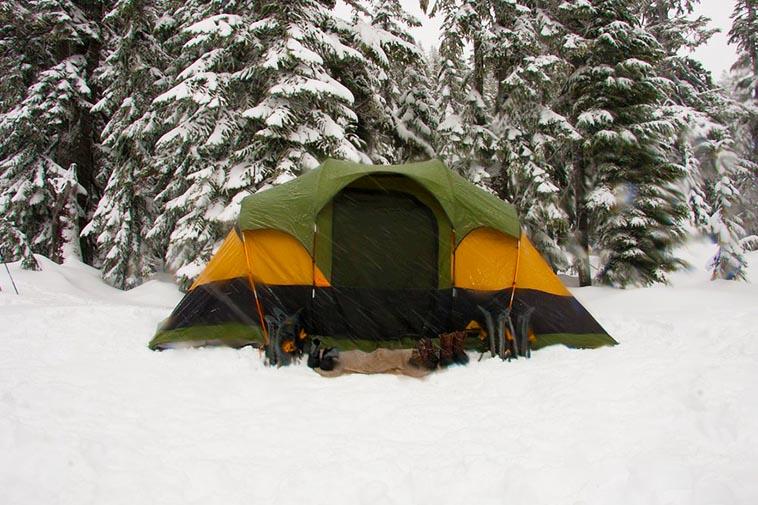Top Tips For Camping in The Cooler Months

Winter camping doesn’t have to mean renting a wood stove-heated cabin – for some people, it means taking your tent to a remote spot and enjoying the pleasures of a night under canvas. If you’ve always thought of camping as a summer activity, it’s time to think again. Here are some top tips to help you enjoy a wonderful winter camp.
Wear A Warm, Fireproof Outer Layer
It goes without saying that you need to stay warm when camping in the winter, but it’s important to remember to choose a fireproof outer layer. You’re almost certainly going to be building a campfire during your trip, so you need to choose a warm yet fire-resistant material for your jacket.
Wool is a great choice and is naturally fire resistant while also toasty to wear. While you’re thinking about staying warm, remember to take extra hats and gloves just in case you lose one out on the trail. You don’t want to get frostbite!
Take A Pee Bottle
When you’re out in the cold, you’re more likely to need to pee more often and nobody wants to go outdoors to urinate in the snow in the middle of the night. A pee bottle eliminates the problem. With attachments for men and women, you can stay in the warmth of your tent while answering the call of nature. Don’t forget to label the bottle though – you don’t want to drink the contents by accident!
Don’t Forget The Stakes
Staking out your tent in the snow is just as important as staking it on hard ground. Either choose specially made hard tent stakes for use on frozen ground or use a sack packed with snow to hold your tent firmly in place so you don’t have to struggle with a moving tent.
Get The Right Kind Of Sleeping Pad
It’s important to remember that when you’re camping in the winter you need extra layers underneath you. Two layers below you are worth one over you as you lose extra heat via conductive heat loss. Choose a sleeping pad which as at least an r value of 4 and use a closed-cell foam pad under it.
Put Your Boots In Your Bed
You don’t want to catch hypothermia from having frozen boots, so take them into your sleeping bag overnight with you. Use a pair which have removable liners whenever possible – these are easier to put down into your sleeping bag so they stay warm during the night, but if your boots are single layer, use a waterproof sack so they can still go into the bottom of the bag.
Choose Lithium Batteries
You shouldn’t camp in winter without lithium batteries. NiMh and alkaline batteries don’t perform well in cold temperatures, but lithium batteries are light to carry, have a flat curve of decay and, most importantly, last three times longer.
Dry Your Bag
As long as it isn’t snowing, you should turn your sleeping bag inside out then place it onto your tent during the day so it can dry out. Whenever possible, choose a sleeping bag which has a black interior to absorb extra solar energy for more rapid drying.
Follow these top tips and you’ll be ready to set off for your first winter camping trip. Enjoy the colder weather, cozy and warm in your tent!
